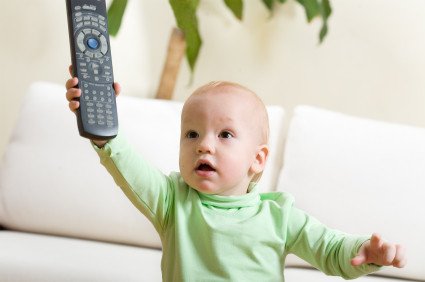Dear readers,
As I write this, I am waiting for the cable guy (or cable person, as the case may be). I haven’t had regular Internet access since June 17th, not that I’m counting. So the cable person is coming to install a landline (no mobile phone service here, either), Internet, and, um, possibly cable TV.
I kind of want it. I haven’t had a TV hooked up for years. Although I do take a smug pleasure in saying, “My kids don’t watch any TV,” I’m sure this is more annoying than inspiring.
People often say to me, “Don’t your kids feel left out that they don’t get to watch the shows that the other kids are watching?” I honestly don’t think that they do feel left out, though they are only 7 and 9, so this may change.
To me, here are the pros of having television:
- It would be fun to watch cooking shows with my children; maybe it would inspire them to spend more time in the kitchen with me.
- If there is a show that all the other kids are watching (American Idol) it’d be fun to watch this together.

Although there is a tiny bit of evidence that some shows are, indeed, educational, clearly time spent reading or in other activities is a zillion times more beneficial developmentally, so I’d put educational shows in a neutral category—not really a “pro” of watching TV, but certainly not a “con,” either.
Here are the cons of television, for my family:
- TV takes time that kids could be playing, reading, socializing or doing other, more developmentally beneficial activities.
- My kids always seem really cranky after they’ve been watching TV.
- Currently my kids are great at entertaining themselves by drawing, playing outside, and by playing with their pet rats (sounds gross, I know, but those pets are a positive thing). I’m afraid they’ll lose this self-entertaining skill if they can do something that takes less effort, like watch TV.
- TV may create a new battle-ground: “can I watch TV” begging. I certainly know how to create limits (my mom only let my brother and I watch a half hour of TV per day) but I think my kids will still ask, beg, and cajole me to make exceptions. I can also limit this behavior by taking away TV if they do it, but then I will have created a complicated new system ripe for arguments.
- Even if I’m super-controlling about which shows the kids are allowed to watch, TV can have a pernicious effect on our perceptions of race and ethnicity. New research shows that watching how black characters are treated on TV tends to affect people’s attitudes about race both consciously and unconsciously, and usually not for the better. Why would I want to let actors’ and producers’ prejudices influence my kids?
- Moreover, and I think this is my biggest concern, the influence of commercials, product placement, and celebrities—especially if my kids’ heroes are endorsing a product or style just by wearing it—is not happiness-making. Consumption and materialism are in large part learned; the materialistic culture often represented on television creates beliefs and behaviors that ultimately make kids dissatisfied (and whiny) rather than joyful.
All these cons, and still I am tempted to have cable installed. I’d love your comments and feedback about how you handle the omnipresent boob-toob in your household.
More from the Raising Happiness (formerly Half Full) blog:
Let Kids Just Play
Summer is the perfect time for unstructured play (which science says is more important than homework!).
How much “screen time” is too much?
Turn Off the Boob-Toob (short video)
Also on Greater Good:
Is TV Not as Bad for Kids as We Thought?
Can We Play?
Play is essential to positive human development, but kids are playing less and less. What can we do to build a new culture of play?
Confessions of an Anxious Parent
Are today’s parents afraid to let their kids play on their own? Strike a balance between safety, freedom, and success.
Raising Happiness Happenings
As summer comes to a close, I’ll be shifting my focus from the “Walking the Talk” feature, where I’m blogging about my own attempts to put the science into practice, back to “The Main Dish” postings, where I dig a little deeper into the research and it’s implications for parenting. Please suggest topics in the comment section that you’d like to read about in the coming school year.
Take the Raising Happiness Class! Designed for busy parents, teachers, and caregivers, you can take this parenting class online or live at Head Royce School. Over the school year, we will develop happiness habits: practices, beliefs, and behaviors likely to bring more joy into our own lives and the lives of our children. Sign up here: www.raisinghappiness.com.
© 2010 Christine Carter, Ph.D.
Follow Christine Carter on Twitter
Become a fan of Raising Happiness on Facebook


Comments